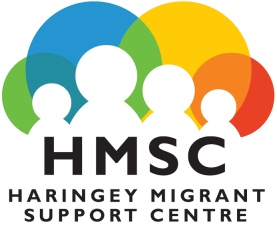July 10, 2019 by admin
Yaa’s story
Yaa* didn’t know anyone when she first arrived in the UK. When she became pregnant, she had nowhere to go. She met a woman who let her stay with her, but after a couple of months she was asked to move on. Yaa found a single room to rent, and the father of her baby provided some financial support initially, but once the baby was born, he left her to cope on her own.
Paying the rent became a big problem. Yaa managed to survive by using her skills as a hairdresser. Sometimes she would be forced to ask for money.
When Yaa couldn’t pay the rent, her landlord became aggressive and would threaten her, often in front of her young daughter. This has had a big impact on her wellbeing:
‘Now, if my daughter hears somebody knocking at the door, she cries. In her sleep, she shouts out, ‘Don’t hurt my mummy, don’t hurt my mummy’. I didn’t have anywhere else to go. One day, I called the police, but they didn’t do anything.’
After about a year, Yaa was evicted by her landlord. Finding another room to rent was very difficult with a child, as many landlords did not want to let out properties to families.
Yaa went to Enfield Council to ask for help, but they said they couldn’t help her because of her immigration status. She met a woman there who brought her to Haringey Migrant Support Centre (HMSC):
‘One lady said you need a place – she told me about the migrant centre. She said if you want to follow me there, you can get help.’
At HMSC, the barrister and Welfare Advisor helped Yaa resolve her immigration status, and then got the ‘no recourse to public funds’ condition lifted:
‘[The Welfare Advisor] helped a lot. This lady is a good lady. She has the patience. She called me on the phone and said, ‘I will refer you to lawyer to help you.’’
The lawyer contacted Enfield Council, and they agreed to provide Yaa and her daughter with temporary accommodation, initially in a hostel.
Before Yaa was granted recourse to public funds, life was very difficult:
‘[when] I did not qualify [for public funds] – when it was my daughter’s birthday, I did not have money to celebrate it. It is stressful. Your daughter is stressed as well. Because sometimes, if you go out, you need something, you don’t have money to buy it for her, that is not easy at all – for you and your daughter. If your daughter is crying because you don’t have money to buy it, everybody looks at you.’
Since Yaa was granted recourse to public funds, life has felt much more manageable. Yaa feels she can give her daughter opportunities that weren’t possible before:
‘I took my daughter to the beach! I take her to the swimming pool, to the funfair. If you have the money, you just want to go there. I want to keep my daughter happy. Because before, not happy at all. It’s made a big difference. We celebrated her birthday for the first time last year. […] These people [at HMSC], they are good people. They help people. I’m okay, I’m happy, the migrant centre and [the Welfare Advisor] helped me. I’m happy for that.’
(*Not real name)
This case study was written by HMSC’s volunteer Rachel, who has been meeting with current and former visitors to give everyone a better sense of what visitors go through.

Leave a Reply